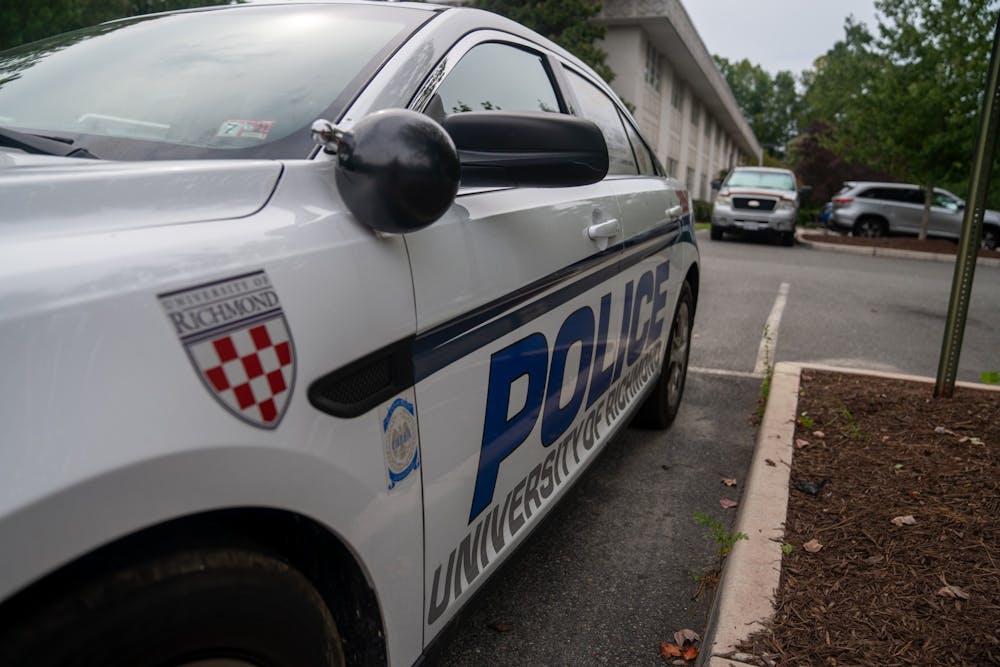State and federal law enforcement are investigating a threatening email sent to a University of Richmond employee and similar emails sent to colleges across Virginia and the U.S.
In the afternoon on Jan. 23, the UR Police Department received a call from a UR employee about a threatening email found in a departmental inbox, Dave McCoy, URPD chief of police, said. The email did not specifically identify UR, McCoy said.
At the time of the call, URPD was aware that other messages with similar content had been sent to universities across Virginia, McCoy said. URPD determined that the email was not an immediate threat to UR with help from state authorities, McCoy said.
URPD began an investigation into the threat, McCoy said, but deferred to the greater resources of the Virginia Fusion Center, an intelligence center that connects local, state, and federal partners, and FBI office when it had gone as far as it could with its investigation.
URPD will aid in the state and federal investigation in any way it can, but the incident is “much larger than just the University of Richmond,” McCoy said, referencing how other colleges across Virginia and in the U.S. received similar messages. Police captain Eric Beatty sent out a timely warning to the UR community at 3:57 p.m., informing the community of the threat.
“The University of Richmond Police Department (URPD) takes any threat against the campus or a member of the community seriously,” Beatty wrote in the timely warning. Beatty requested in the timely warning that anyone with information about the threat contact URPD.
The sender’s selection of university employee email recipients appears to be random across Virginia universities, McCoy said. The timely warning was sent out, in part, to determine whether the email had been sent to any other members of the UR community, McCoy said.
Rachel Lim, a first year, was surprised when she first read the timely warning and concerned for the person who received the threat. She hoped the threat was not real, she said.
As part of the investigation, Information Services investigated the threatening email to try to find its origin and any other useful information, Shana Sumpter, director of information security, said.
The email was unusual in that it did not have telltale signs of spam or a phishing attempt, Sumpter said, so it did not get automatically blocked.
Signs of phishing include the volume of the message, keywords and the IP address, Sumpter said. Ultimately, Information Services was not able to uncover the identity of the sender, Sumpter said.
Like UR, Hampden-Sydney College, Averett University, Bluefield College and Central Virginia Community College in Virginia all received an anonymous email threat on Jan. 23, which led the campuses to go into lockdown, The Southside Messenger reported.
Enjoy what you're reading?
Signup for our newsletter
The emails threatened that a person would come to campuses and harm people, but police ultimately deemed the threats not credible, The Southside Messenger reported.
Florida colleges including the University of Tampa, Jacksonville University, Daytona State College, Southeastern University and Florida Southwestern State College received anonymous emails containing shooting and bomb threats on Jan. 22, prompting some campuses to evacuate.
Daytona State College received a detailed threat that “entailed shooting and explosives” and included a specific time, FlaglerLive.com reported.
The email the University of Tampa received suggested the sender was seeking revenge on the school for being expelled, according to Tampa police as reported in 10 Tampa Bay. The school did not evacuate.
The UR timely warning stated emails had been found across Virginia and the U.S., but The Collegian could only find coverage of email threats to colleges in Virginia and Florida.
All five Florida colleges found that the threat was not credible.
Confidential on-campus resources for survivors of sexual violence are CARE Advocates, Counseling and Psychological Services, the Office of the Chaplaincy and PSMAs, who are accessible through email and Zoom meetings during this time if desired.
Non-confidential resources include the University of Richmond Policy Department, Title IX deputy coordinators, the Office of Common Ground and the Westhampton College and Richmond College deans’ offices.
Contact contributor Olivia du Bois at olivia.dubois@richmond.edu.
Support independent student media
You can make a tax-deductible donation by clicking the button below, which takes you to our secure PayPal account. The page is set up to receive contributions in whatever amount you designate. We look forward to using the money we raise to further our mission of providing honest and accurate information to students, faculty, staff, alumni and others in the general public.
Donate Now



